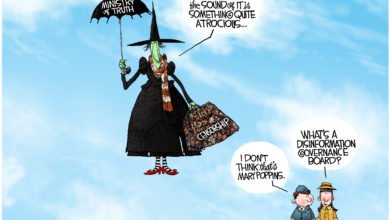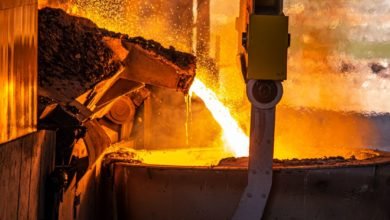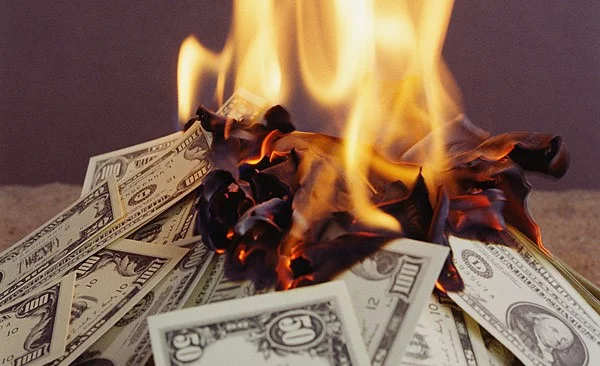How CO2 Supply Chain Mayhem Almost Caused a Meat Shortage in Britain
In recent months, many of us have faced empty shelves, long lines, and frustrating delays as supply chains have seized up around the country, and indeed the world. Some have argued that the government should step in to fix these issues, blaming the problems on “corporate greed” and “the free market”. But while it may be tempting to blame private companies for our current woes and see the government as the savior, the reality is not that simple. Indeed, far from being the solution, government intervention in the market is arguably the primary cause of these problems in the first place.
A good case study for this issue is Great Britain. Back in September, the nation’s supply chain issues got so bad that they almost had major disruptions in their food supply. The UK government has been intervening in an attempt to fix the problems in the short run, but the situation is still extremely precarious.
So who is responsible for these issues? Well, let’s follow the supply chain link-by-link and see if it can lead us to the culprit.
Link 1: Carbon Dioxide
The immediate problem that food producers are facing is a shortage of food-grade carbon dioxide (CO2). The meat industry is particularly affected by this shortage, since CO2 is used in many meat production processes. But aside from that, the gas also plays a key role in modified atmosphere packaging, which is used to prolong the shelf life of many food products. It’s also used in carbonated drinks (hence the name) like beer and soda, and in its solid form as dry ice it is used to keep fresh food cool during transportation.
Why is there a shortage of CO2? Well, most food-grade CO2 comes from fertilizer plants, because CO2 is a byproduct of the fertilizer manufacturing process. These plants, however, have been producing far less CO2 than normal. So to understand why there’s so little CO2, we need to investigate the fertilizer plants. This brings us to the next link in the chain.
Link 2: Fertilizer Plants
Two of the biggest fertilizer plants in the UK are owned by a company called CF Industries. Together, they normally produce about 60 percent of the UK’s food-grade CO2. However, these plants were actually shut down for a large part of September, which drastically reduced the UK’s CO2 production.
The reason they were shut down is because natural gas, an essential part of the fertilizer process, has been very expensive in recent months. With the price of this key input so high, it was actually uneconomical for the plants to operate, so they decided to shut down temporarily in hopes of restarting their operations once the price of natural gas came back down. But why is natural gas suddenly so expensive? This brings us to the third link in the chain.
Link 3: Natural Gas
First, to say that natural gas prices are high in Britain is really quite the understatement. According to Industry group Oil & Gas UK, wholesale prices for gas in September were up 250 percent since January, and had increased 70 percent since August. As one UK energy CEO remarked, this is “the most extreme energy market in decades.”

So what’s causing the high prices? A number of factors. High global demand has played a role, especially since roughly 60 percent of the UK’s natural gas supply is imported. Lower solar and wind output have also been factors, as well as outages at some nuclear stations. The cold winter in 2020 also resulted in depleted stocks (since people use natural gas to heat their homes), and several gas platforms in the North Sea have closed to perform maintenance that was paused because of the COVID-19 lockdowns.
But one of the biggest sources of price volatility is the dearth of natural gas storage facilities in the UK.
“The UK currently has very modest amounts of storage, less than 6% of annual demand.” writes Michael Bradshaw, a Professor of Global Energy at the University of Warwick. “In Germany, France, and Italy, storage covers about 20% of annual demand,” he continues for context. Another report noted that the UK has enough storage to last for about 7 days, whereas Germany and France have roughly 90 days of storage.

While storage is far from the only factor affecting natural gas prices, it certainly plays a significant role. But why does Britain have so little storage capacity? This brings us to the final link in the chain.
Link 4: Natural Gas Storage
One of the reasons for Britain’s low storage capacity is that a storage facility called Rough, which used to provide a significant percentage of the UKs natural gas storage, was decommissioned in 2017 as a result of age-related deterioration.
Industry leaders were concerned about the resulting lack of storage at the time, and have been warning about the issue ever since.
“Rough makes up an impressive 70% of the UK’s storage working gas volume,” Timera Energy noted back in 2017, when permanent closure was still being deliberated. “This can be contrasted with Rough’s contribution to the UK’s daily deliverability, at around 25%. And it is the deliverability that the UK market will miss most.”
They go on to explicitly discuss the likely impact of the closure on the price of natural gas. “The loss of deliverability should boost spot price volatility as it reduces the buffer of supply flexibility available to respond to swings in daily demand…The loss of working gas volume is likely to mean that supply shocks…have a sharper and more prolonged price impact.”
The need for more storage was reiterated in 2019 by another industry leader named InfraStrata Plc. “There is more demand in the market than we can satisfy,” said John Wood, the CEO of InfraStrata. “The market in the U.K. is sending out strong economic signals for additional gas storage capacity.”
So why wasn’t more storage built? Well, as it turns out, natural gas storage is taxed and regulated very heavily in the UK, much more so than other industries. Indeed, one of the largest gas storage operators in the country, called Storengy, explicitly called attention to these problems back in 2018, pointing out the “punitive” and “extortionate” tax levels that are applied to storage facilities as well as the numerous regulations that burden the industry.
As a result of these barriers, many potential storage projects have remained on the shelf, since they are prohibitively expensive in the current business environment. Thus, even though the demand is clearly there, the market has been unable to meet it, because taxes and regulations have severely crippled the industry.
This analysis is hardly exhaustive, of course. But at least with respect to the storage issue, it seems clear that government intervention in the market is the primary cause of the food supply chain disruptions.
Innumerable Antecedents
One of the interesting things about this story is how it highlights the plethora of people, items, and systems that work together to keep our grocery shelves full. First, we discovered that food producers rely on CO2. That led us to investigate fertilizer plants and the crazy natural gas market, and then from there we explored natural gas storage and learned about the many ways that government intervention has been crippling that industry. Of course, most people wouldn’t intuitively connect gas storage regulations with food availability, but the rippling unintended consequences of these policies are very real nonetheless.
In his famous essay “I, Pencil,” Leonard Read similarly draws attention to the “innumerable antecedents” of everyday items, such as the seemingly simple lead pencil.
“Just as you cannot trace your family tree back very far, so is it impossible for me to name and explain all my antecedents,” Read wrote, speaking as the pencil. He goes on to discuss some of the many ancestors of the pencil, the people and things that went into producing it, and he points out how they all depend on one another. Indeed, you can’t mess with the trucking industry without impacting the production of pencils, just as you can’t mess with natural gas storage without impacting food supplies.
With that said, trucking and natural gas are not only ancestors of pencils and food. They are also ancestors of many other products, and this leads to an important insight. In reality, it’s actually somewhat misleading to speak of supply chains, as if the economy consisted of independent, linear processes. The economy is much more accurately characterized as one giant supply web, a multiplicity of interconnected processes that all depend on each other in various ways.
With this in mind, it quickly becomes apparent why interfering with the economy can be so dangerous. When the government breaks one part of the web, they aren’t just impacting one chain, they are creating countless unintended consequences, many of which are impossible to foresee.
If we’re lucky, those consequences will only lead to higher prices. If we’re not so lucky, empty grocery shelves await.
Addendum: Addressing the Problem
To address the looming crisis, the UK government ended up bailing out CF Industries, the company that owns the fertilizer plants. The deal, which was finalized on September 21, resulted in one of the two plants resuming operations, with the UK government providing “limited financial support,” which the Environment Secretary later clarified was “going to be into many millions, possibly the tens of millions [of euros].”
Since then, the government has brokered a deal between CF Industries and its CO2 buyers. Though the details are unclear, the government seems to be involved in setting the price of CO2, which would constitute even more intervention in the market.
But intervention is not the solution here. When governments intervene, they inevitably distort price signals, leading to increasingly inefficient outcomes. The real solution is for the government to stop causing the problem in the first place by removing the taxes and regulations that are standing in the way of the natural gas storage market.
Granted, it will take some time before the storage market can adjust, but even in the interim, the best way to address these problems is to let markets and prices do their thing.
Content syndicated from Fee.org (FEE) under Creative Commons license.




